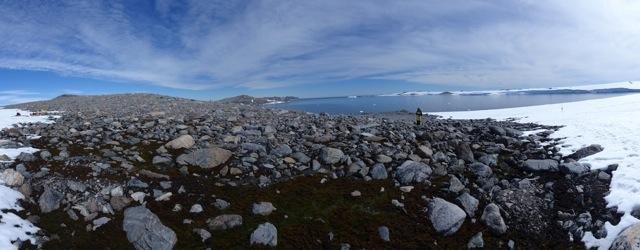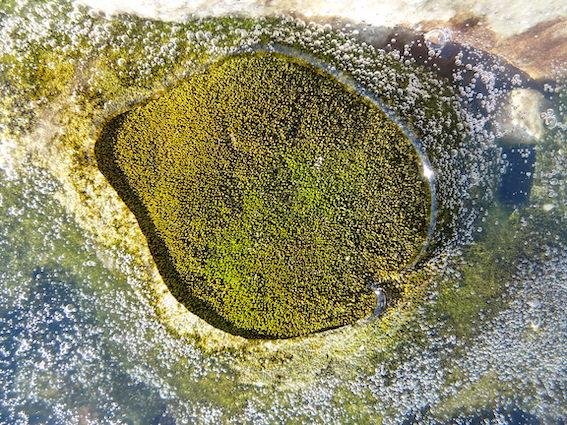Displaying items by tag: chlorophyll fluoresence
Even in Antarctica - it’s hot in the sun!
We know that Antarctica is the frozen planet and we tend to think that its animals and plants must also be well adapted to cold conditions. As a result we probably assume that they do better in cold conditions than other plants or animals. But is that really true?
Working with mosses, the main plants, in Antarctica I have often wondered this? I know they are amazing at surviving the cold. Try putting your salad vegetables in the freezer and you quickly see that many plants are very bad at tolerating freezing. Some plants are even damaged by chilling temperatures above zero (fridge temperatures). But we can collect Antarctic mosses, dry them and put them in the freezer and then take them out after a few months, or more than 50 years, and they will grow again! So yes, they can tolerate freezing conditions - they put up with about 8 months a year in nearly complete darkness and temperatures as low as -40˚C
But that doesn’t mean they like it cold. Are they just able to tolerate cold but would be more productive if summers were warmer? If so, can they warm themselves up above those usually chilly summer air temperatures of 1-2 40˚C? Are they really in Antarctica because they can survive the cold winters while other plants can’t? In which case its more about lack of competition from flowering plants than actually being truly cold loving.
LIFT workshop - Jülich, Germany
Last year in November, our group led by Barry Osmond hosted a LIFT (light induced fluorescence transient) meeting in Wollongong. The second meeting was held in Germany hosted by the Forschungszentrum Jülich IBG-2: Plant Sciences. The University of Wollongong, HRPPC at CSIRO in Canberra and the Forschungszentrum Jülich are developing protocols for measuring canopy photosynthesis using these new LIFT chlorophyll fluorometers.
COST OPTIMISE Meeting - Milan, Italy
Next stop was a 2 day workshop on Innovative optical Tools for proximal sensing of ecophysiological processes (OPTIMISE) in Milan. This was funded by COST which is an intergovernmental framework promoting European Cooperation in Science and Technology, through coordination of nationally-funded research on a European level.


